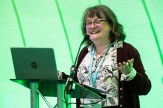Humble beginnings and hard work pay off for this Northeastern graduate student from Ghana
Grateful for support, a graduate student from Ghana gives a Northeastern professor an unusual token of appreciation.
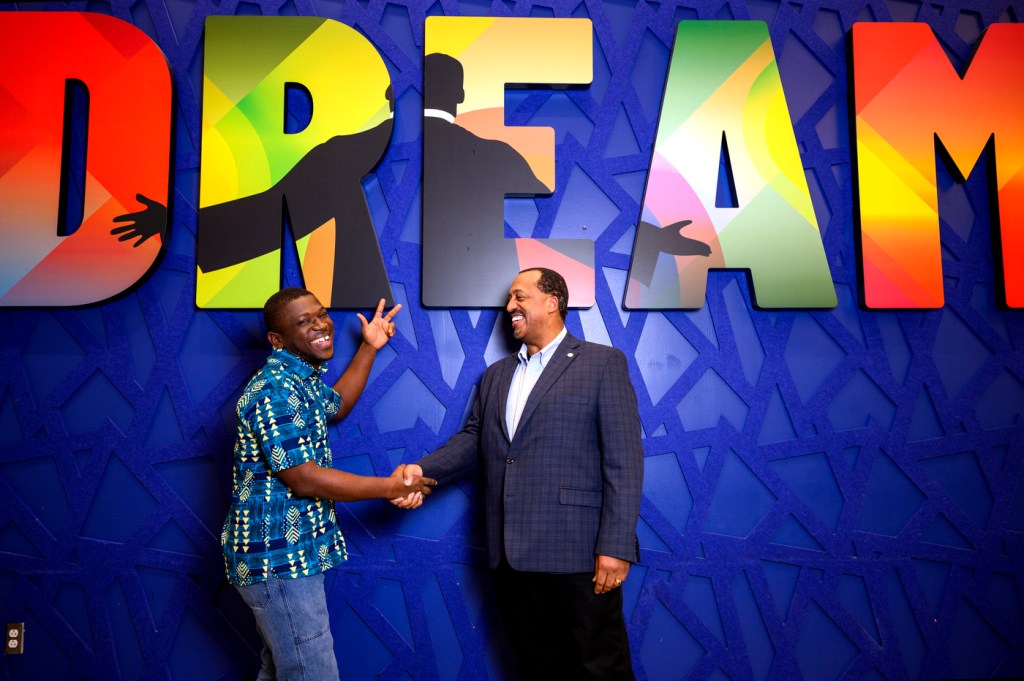
Growing up in Ghana wasn’t easy, Moses Ayirebi says.
“My parents struggled to provide for our family’s needs,” says Ayirebi, 29, who began an urban planning and policy graduate degree program at Northeastern University last month.
Ayirebi was the only boy among four children. Although he loved reading, he also spent a lot of time with his father, who had a passion for farming and wanted Ayirebi to learn to plant and grow food such as yam, maize and cassava.
“As a young man, you’re supposed to get the skill sets before you leave the home,” Ayirebi says.
Ayirebi’s father was a civil servant at the National Disaster Management Organisation, and his mother was a petty trader. They wanted their children to study and get a proper education to be able to improve their lives and the lives of the members of their community.
“My dad always checked my assignments and homework and made sure the work was done before the following day. I am sure I would be punished the following morning before going to school [if I hadn’t done my homework],” says Ayirebi, smiling.
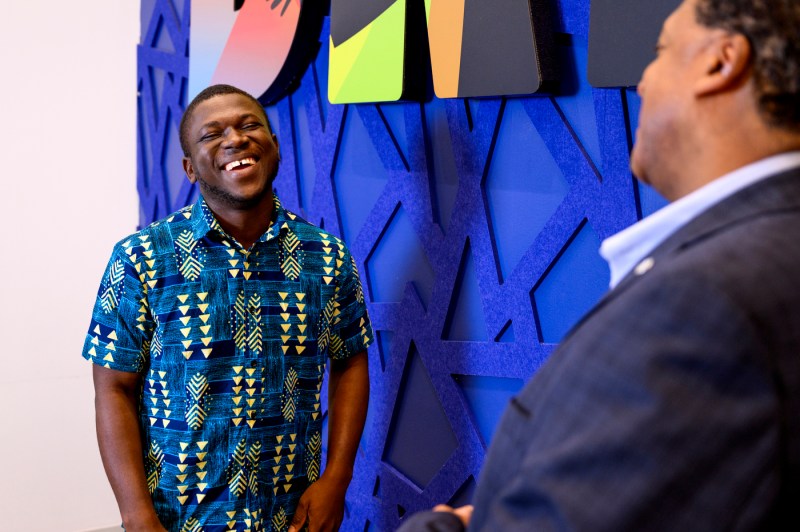
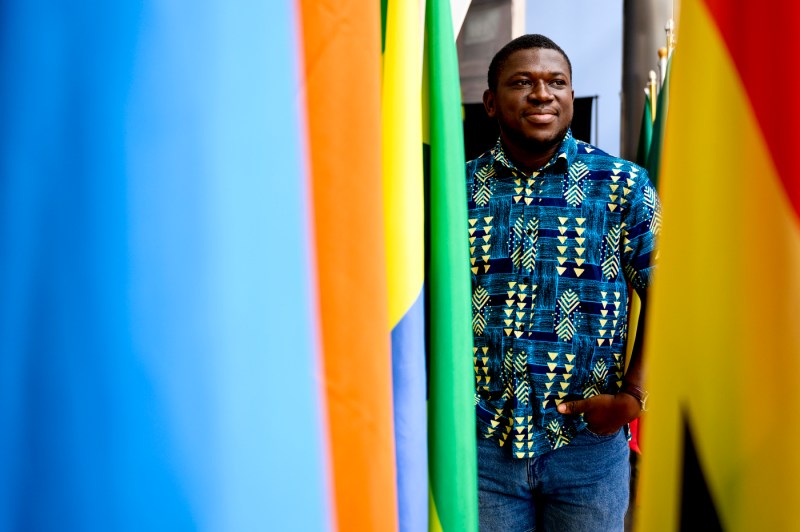
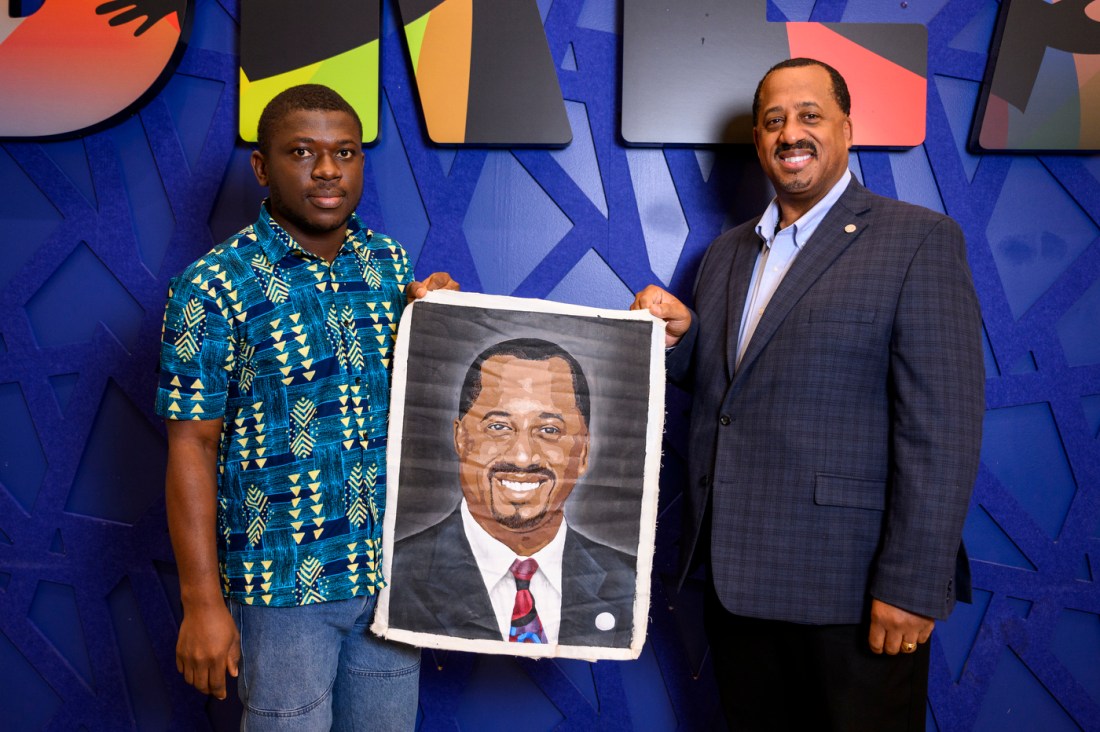
When Ayirebi was 16 years old and boarding at a public high school away from home, his father lost his job. That had a significant impact on the family, he says.
“It was a tough time for us,” he says, “and we were struggling to make ends meet.”
His uncle came to their aid, Ayirebi says, and helped them pay the bills. Ayirebi had to work as a waiter at a restaurant in Accra, the capital of Ghana, for a year after graduating high school to save some money for college.
In 2014, he became the first person in his family to attend a university — Kwame Nkrumah University of Science and Technology, where he studied human settlement planning. His parents did not have the means to send his older sister to college.
In summer and on school breaks, Ayirebi continued working at the restaurant, eventually becoming a senior waiter and an assistant manager.
“That built a character in me,” he says. “I learned how to interact with people.”
Last March, Ayirebi met with Richard O’Bryant, director of the John D. O’Bryant African American Institute and research associate of the Dukakis Center for Urban and Regional Policy. O’Bryant was in Ghana as part of Northeastern’s fifth Global Leadership Summit, which was held in Accra.
Close to 300 people attended the summit, including top Ghanaian civic and business leaders. The goal of the summit was to engage in dialogue about opportunities and innovation in Ghana and across Africa.
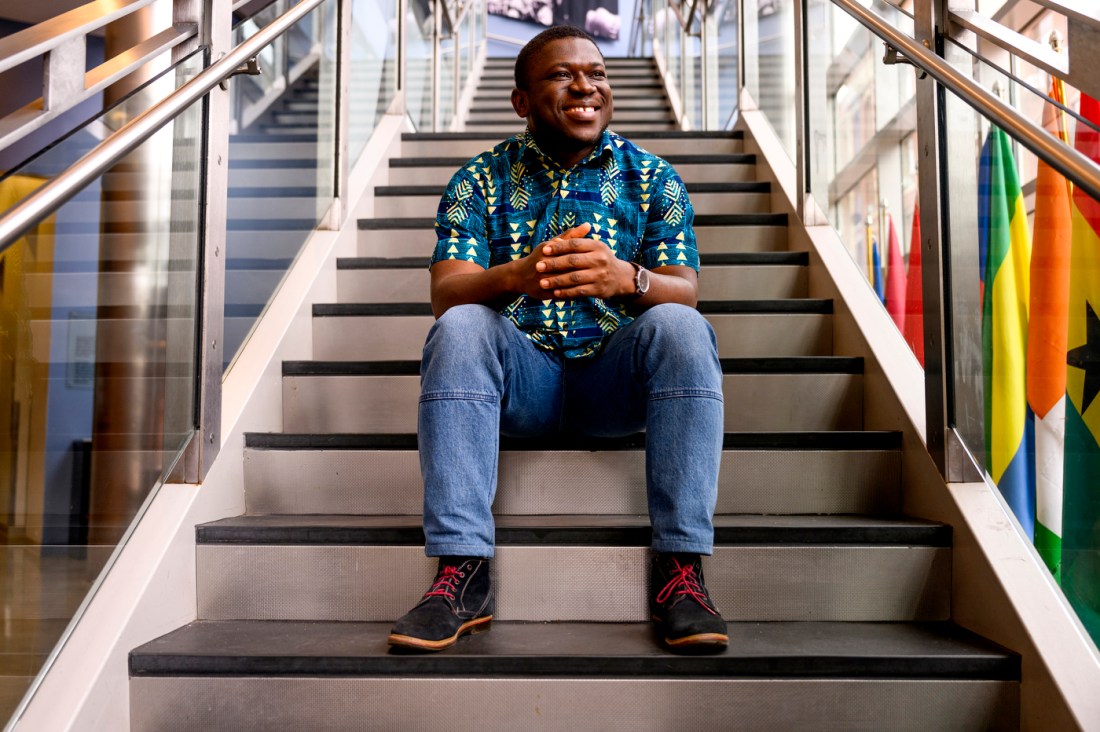
Ayirebi was among dozens of young Ghanaians who attended the summit and expressed interest in the university and its global experiential model of education. Many of them spoke to O’Bryant, who was a part of the faculty delegation.
“I interact with students all the time,” O’Bryant says. “I am constantly recruiting.”
He tried to talk to every young person individually, he says, ask about their majors in college and future interests and give them advice about the field they were looking to go into.
“I took a keen interest in what Moses was talking about,” O’Bryant says. “He was particularly interested in renewable energy and trying to address some of the energy shortages in Ghana.”
Having a chance to travel through the countryside in Ghana, O’Bryant noticed how some areas were very underdeveloped, he says, and families were living there without sufficient shelter, running water or electricity. He spoke to Ayirebi about solar power and developing solar energy policy in Ghana.
Featured Posts
For his undergraduate degree, Ayirebi had studied human settlement planning at Kwame Nkrumah University of Science and Technology. After college, he worked at a few governmental agencies such as the National Information Technology Agency and the Department of Urban Roads. He also volunteered and fundraised for multiple organizations that work with homeless shelters, children’s homes, disabled people, and youth mentorship and counseling.
“Because of my story, I wanted to help marginalized members of society,” he says. “When I got into it, I realized that my story wasn’t that unique, because they all have stories. … Life is unfair for them but then we have to help.”
O’Bryant and Ayirebi stayed in touch after the Northeastern delegation returned to the U.S.
After the summit, Ayirebi applied and was accepted into the School of Public Policy and Urban Affairs in the fall 2023. He hoped that at Northeastern he could strengthen his analytical skills, Ayirebi says, and get a wider view on urban planning beyond what he learned in Ghana.
“It was a pretty challenging process for Moses to come to the United States,” O’Bryant says. “It was while we were on winter vacation — the scurry of emails going back and forth.”
Last month, upon his arrival to Boston, Ayirebi popped up in O’Bryant’s office unannounced and presented him with a painting that he commissioned from his friend before leaving Ghana for the U.S. The painting was a portrait of O’Bryant.
“I’m grateful to him,” Ayirebi says. “Since my father is not here, I see him like a father figure. Someone that I can interact with, someone I can talk with.”
“I told him that was an amazing gift. I truly appreciated it,” O’Bryant says.
“Moses is just a prime example of what we can do and what we can accomplish if we make that effort to reach out to people interested all over the world,” he says.
Ayirebi started classes in January at Northeastern’s Boston campus at the School of Public Policy and Urban Affairs.
“I want to learn more about urban design, sustainable development, economic analysis and building electricity infrastructure so that in the next 10, six or five years I am able to develop strategies and mechanisms to address issues in the community that I am coming from and also in my nation, Ghana, as a whole,” he says.






